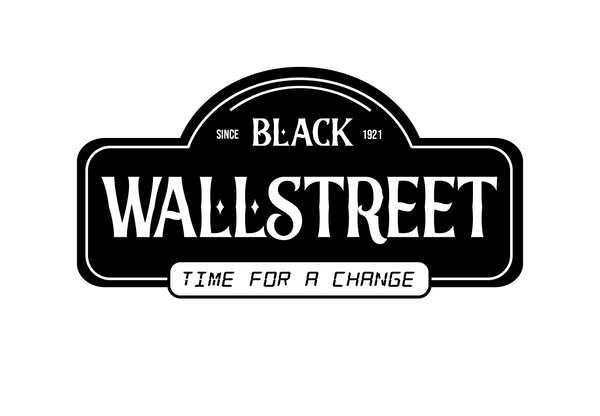
DOJ Launches Probe into Tulsa Race Massacre

The battle for justice in Tulsa, Oklahoma has reached a turning point after more than 100 years since the worst racial violence event in American history. The U.S. Department of Justice (DOJ) has begun its first federal investigation into the 1921 Tulsa Race Massacre that devastated Greenwood's Black community known as Black Wall Street.
A white mob murdered up to 300 Black residents while burning down homes and destroying countless Black-owned businesses during the horrifying events of June 1921. The thriving neighborhood became an ash-covered ruin within hours and remained unacknowledged in textbooks while denied reparations for decades.
A hundred years after the event the Department of Justice initiated a federal investigation through its Civil Rights Division’s Cold Case Unit under the Emmett Till Unsolved Civil Rights Crime Act that allows investigations of racial crimes before 1970.
A Long-Awaited Victory
Kristen Clarke, the head of the Civil Rights Division of the DOJ, labeled the massacre as “one of the most deadly incidents of mass racial violence in U.S. history.”
After the DOJ's announcement Damario Solomon-Simmons who represents the survivors delivered a powerful press conference where he hailed this overdue advancement.
“It is about time! It only took 103 years,” he said. The community remains dedicated to securing reparations because they are Black people who have achieved success.
The decision came as a result of sustained advocacy and repeated engagements with government officials combined with an unyielding community determined to preserve its narrative.
A white mob murdered up to 300 Black residents while burning down homes and destroying countless Black-owned businesses during the horrifying events of June 1921. The thriving neighborhood became an ash-covered ruin within hours and remained unacknowledged in textbooks while denied reparations for decades.
A hundred years after the event the Department of Justice initiated a federal investigation through its Civil Rights Division’s Cold Case Unit under the Emmett Till Unsolved Civil Rights Crime Act that allows investigations of racial crimes before 1970.
A Long-Awaited Victory
Kristen Clarke, the head of the Civil Rights Division of the DOJ, labeled the massacre as “one of the most deadly incidents of mass racial violence in U.S. history.”
After the DOJ's announcement Damario Solomon-Simmons who represents the survivors delivered a powerful press conference where he hailed this overdue advancement.
“It is about time! It only took 103 years,” he said. The community remains dedicated to securing reparations because they are Black people who have achieved success.
The decision came as a result of sustained advocacy and repeated engagements with government officials combined with an unyielding community determined to preserve its narrative.
“Hope is what will get you to stand up when people tell you to sit down.” – Tiffany Crutcher
A Community That Never Gave Up
As a descendant of massacre survivors who established the Terence Crutcher Foundation, Tiffany Crutcher felt a deep personal connection to the announcement.
She expressed that this tragedy has been ignored for too long.
The U.S. Department of Justice's upcoming review of the 1921 Tulsa Race Massacre brings deep gratitude to my family and community.
Tiffany Crutcher highlighted Bryan Stevenson's teachings about hope's crucial role during times of injustice.
Hope drives us to stand up when we are told to sit down and today we stand together.
Why This Matters
As a descendant of massacre survivors who established the Terence Crutcher Foundation, Tiffany Crutcher felt a deep personal connection to the announcement.
She expressed that this tragedy has been ignored for too long.
The U.S. Department of Justice's upcoming review of the 1921 Tulsa Race Massacre brings deep gratitude to my family and community.
Tiffany Crutcher highlighted Bryan Stevenson's teachings about hope's crucial role during times of injustice.
Hope drives us to stand up when we are told to sit down and today we stand together.
Why This Matters
The Tulsa Race Massacre represented both racial terrorism and a calculated attempt to eliminate Black prosperity. Greenwood stood as a beacon of Black financial independence with thriving businesses and healthcare facilities operating under the oppressive conditions of Jim Crow America. We have included a page dedicated to Black owned businesses still thriving today.

The federal review doesn’t erase the trauma. This review fails to restore the lost lives or recover the stolen wealth. The review reveals a fracture in denial while moving toward truth and accountability with potential reparations.
Justice Takes a Fresh Step Forward
The federal investigation not only reopens a past case but creates opportunities for future developments. The federal review recognizes the real experiences of survivors who waited their whole lives for justice. The investigation demonstrates how community organizing combined with legal pressure and continuous advocacy can create powerful change. This investigation shows that Black suffering deserves attention. Black history matters. And Black justice cannot be ignored.
The Greenwood community has waited 103 years. Now, the world is watching. The economic power of Greenwood inspired our comicbook Black Wall Street Time for A Change.




